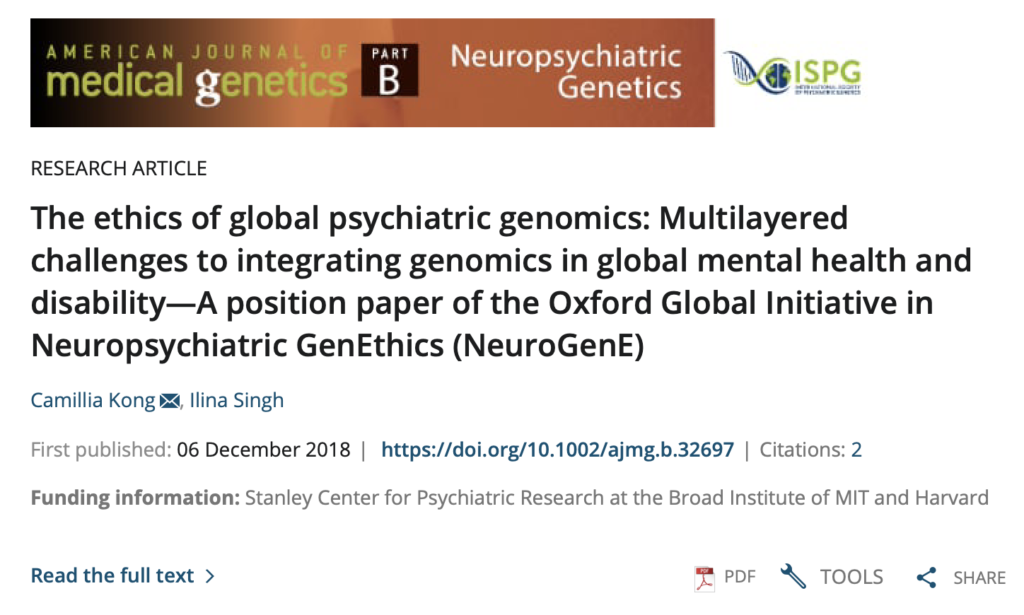Research Vision
Kong, C., and Singh, I. (2018). The ethics of global psychiatric genomics: Multilayered challenges to integrating genomics in global mental health and disability—A position paper of the Oxford Global Initiative in Neuropsychiatric GenEthics (NeuroGenE). American Journal of Medical Genetics Part B: Neuropsychiatric Genetics.
Abstract: Psychiatric genomics has the potential to radically improve the prevention and early intervention of serious mental and neurodevelopmental disorders worldwide. However, little work has been done on the ethics of psychiatric genomics—an oversight that could result in poor local uptake, reduced practical/clinical application, and ethical violations in this rapidly developing area of scientific research. As part of the Global Project of the Stanley Center for Psychiatric Research, the Global Initiative in Neuropsychiatric GenEthics (NeuroGenE) based at the University of Oxford aims to embed ethical inquiry within scientific investigation and engage with fundamental ethical questions around a psychiatric genomics approach to mental and neurodevelopmental disorder. This position paper sets out the core aims of the NeuroGenE research programme and explores the importance of a crosscutting research orientation in this field based on multidisciplinary methodologies which can ensure that efforts to translate and apply global psychiatric genomics in public policy and clinical practice are ethically grounded strategies, respectful of different cultures and contexts.
















